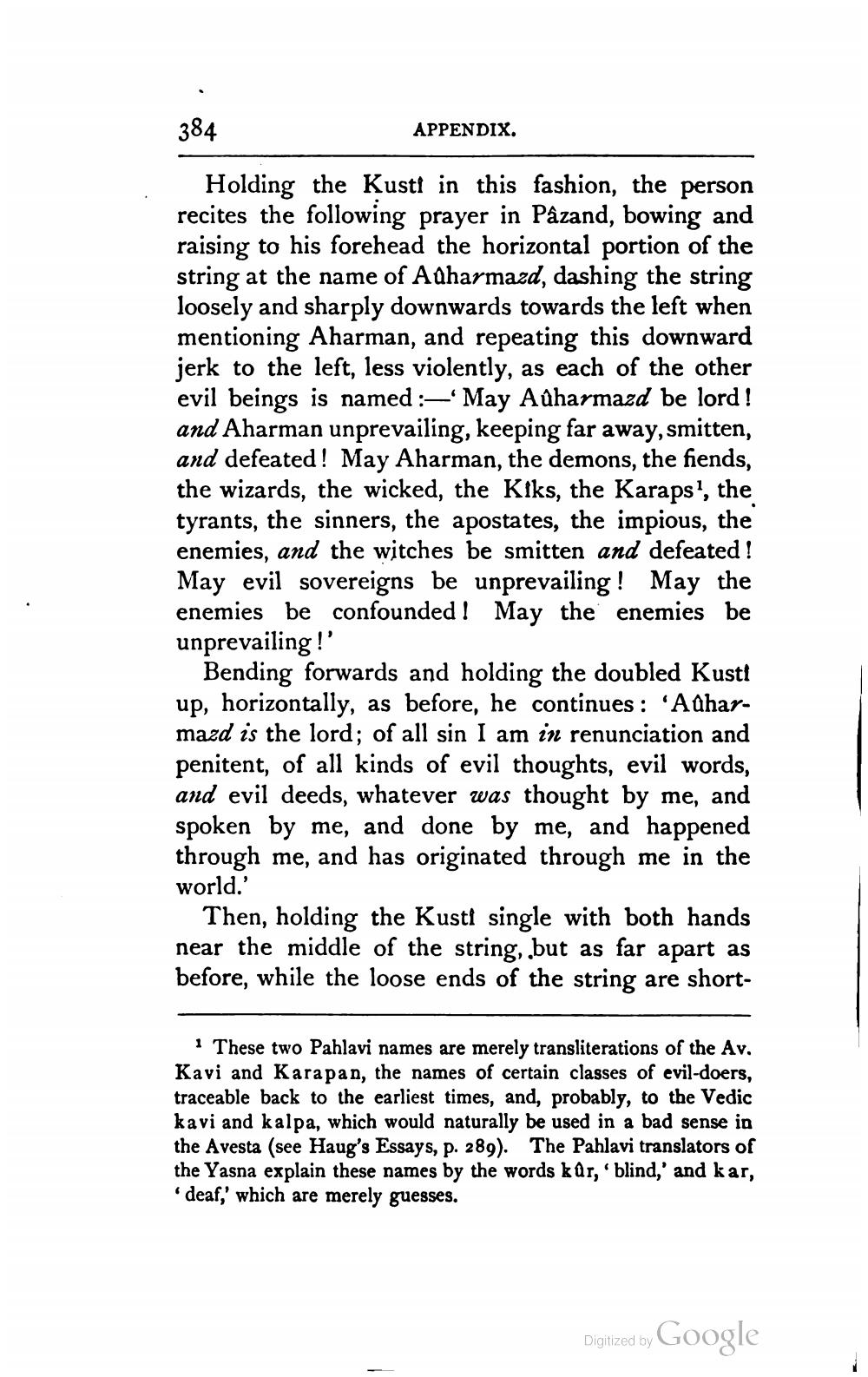________________
384
APPENDIX.
Holding the Kusti in this fashion, the person recites the following prayer in Pâzand, bowing and raising to his forehead the horizontal portion of the string at the name of Adharmazd, dashing the string loosely and sharply downwards towards the left when mentioning Aharman, and repeating this downward jerk to the left, less violently, as each of the other evil beings is named :-May Adharmazd be lord ! and Aharman unprevailing, keeping far away, smitten, and defeated! May Aharman, the demons, the fiends, the wizards, the wicked, the Kiks, the Karaps', the tyrants, the sinners, the apostates, the impious, the enemies, and the witches be smitten and defeated ! May evil sovereigns be unprevailing! May the enemies be confounded ! May the enemies be unprevailing !
Bending forwards and holding the doubled Kusti up, horizontally, as before, he continues : Adharmazd is the lord; of all sin I am in renunciation and penitent, of all kinds of evil thoughts, evil words, and evil deeds, whatever was thought by me, and spoken by me, and done by me, and happened through me, and has originated through me in the world.'
Then, holding the Kusti single with both hands near the middle of the string, but as far apart as before, while the loose ends of the string are short
1 These two Pahlavi names are merely transliterations of the Av. Kavi and Karapan, the names of certain classes of evil-doers, traceable back to the earliest times, and, probably, to the Vedic kavi and kalpa, which would naturally be used in a bad sense in the Avesta (see Haug's Essays, p. 289). The Pahlavi translators of the Yasna explain these names by the words kūr, 'blind,' and kar, deaf,' which are merely guesses.
Digitized by Google




